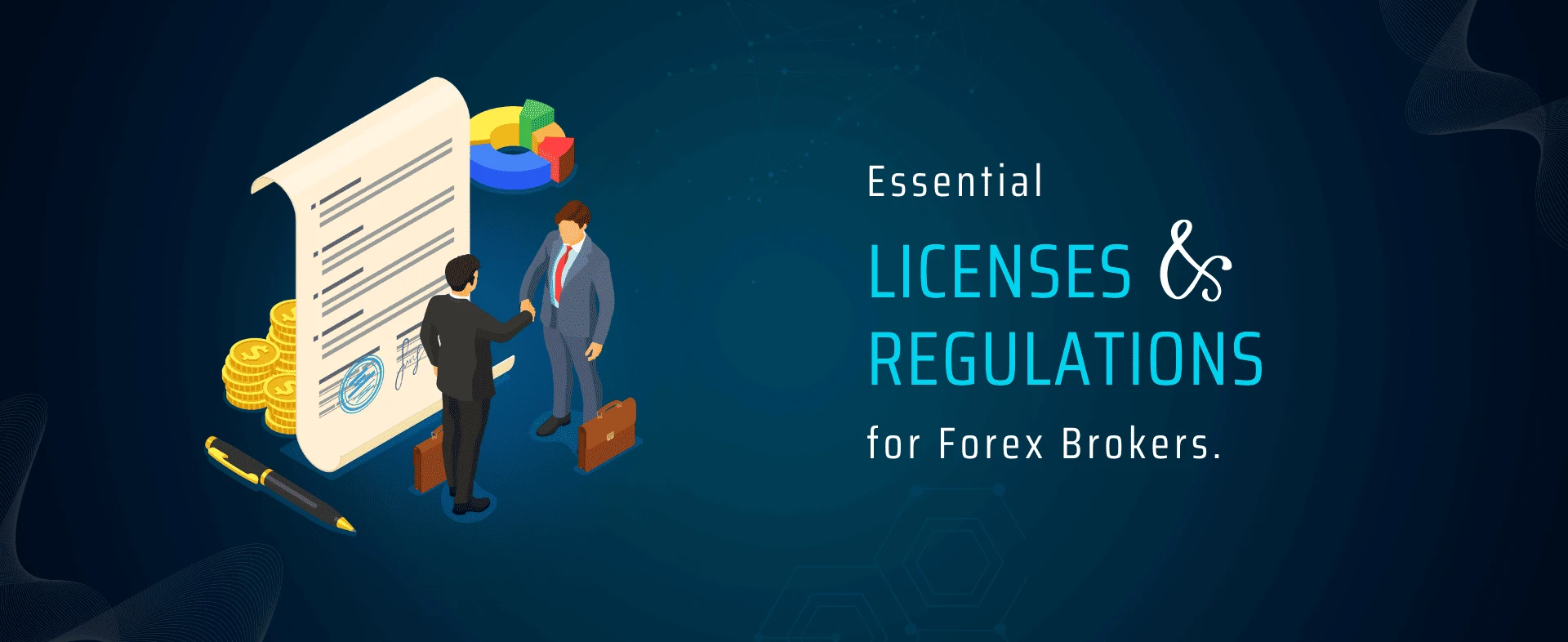
Essential Licenses and Regulations for Forex Brokers
Introduction
In the fast-paced world of forex trading, obtaining the right licenses and adhering to regulations is crucial for building trust and ensuring long-term success. Proper licensing not only enhances credibility but also protects your brokerage and clients from legal risks. This guide breaks down the essential licenses and regulations every forex broker should know before entering the market.
Why Licensing Matters
Forex trading involves significant financial transactions, making it a prime target for fraud and market manipulation. Regulatory bodies enforce strict rules to safeguard traders and ensure that brokers operate fairly. A licensed brokerage signals professionalism, transparency, and financial stability, attracting serious traders and institutional clients.
Key Licenses to Consider
ASIC (Australia)
- Regulatory Authority: Australian Securities and Investments Commission (ASIC).
- Benefits: ASIC is known for its rigorous standards, providing high credibility to brokers. It requires substantial capital reserves and ongoing audits, ensuring broker reliability.
- Requirements: Minimum capital requirements, detailed compliance, and regular reporting
FCA (UK)
- Regulatory Authority: Financial Conduct Authority (FCA).
- Benefits: One of the most reputable licenses globally, the FCA emphasizes client fund protection and segregated accounts.
- Requirements: Proof of operational integrity, strict anti-money laundering (AML) measures, and adherence to investor compensation schemes.
CySEC (Cyprus)
- Regulatory Authority: Cyprus Securities and Exchange Commission (CySEC).
- Benefits: Part of the European Union regulatory framework, allowing brokers to operate across Europe through passporting.
- Requirements: Capital adequacy, risk management policies, and transparent reporting.
FINMA (Switzerland)
- Regulatory Authority: Swiss Financial Market Supervisory Authority (FINMA).
- Benefits: Known for stringent regulatory standards and a strong financial market reputation.
- Requirements: High capital reserves, banking-grade operational standards, and comprehensive compliance frameworks.
Offshore Licenses (Seychelles, Belize, etc.)
- Regulatory Authority: Various (FSA in Seychelles, IFSC in Belize).
- Benefits: Faster, cost-effective setup with lower capital requirements. Ideal for startups looking to enter the market quickly.
- Limitations: Perceived as less rigorous, potentially affecting client trust and partnerships.
Compliance Requirements
- KYC and AML Protocols: Brokers must implement Know Your Customer (KYC) and Anti-Money Laundering (AML) measures to verify clients and prevent fraudulent activities.
- Capital Adequacy: Regulatory bodies require brokers to maintain minimum capital reserves to ensure they can cover client losses and operate sustainably.
- Regular Audits: Many regulators mandate regular audits and financial reporting to ensure brokers operate transparently.
- Risk Management: Brokers must have risk management frameworks to safeguard both their operations and client investments.
Choosing the Right Jurisdiction
- High-Regulation Jurisdictions: Countries like the UK, Australia, and Switzerland offer stringent regulations, increasing broker credibility but requiring higher operational costs.
- Offshore Jurisdictions: While cost-effective, offshore licenses may lack the prestige of higher-regulated regions. They are ideal for brokers targeting emerging markets or starting with limited capital.
- Factors to Consider: Budget, target market, desired reputation, and long-term growth plans.
Conclusion
Obtaining the right forex brokerage license is more than a legal requirement—it’s a strategic move that builds trust, mitigates risk, and opens doors to global markets. By choosing the appropriate jurisdiction and adhering to regulatory standards, brokers can enhance their reputation, attract clients, and ensure sustainable growth in the competitive forex industry.


